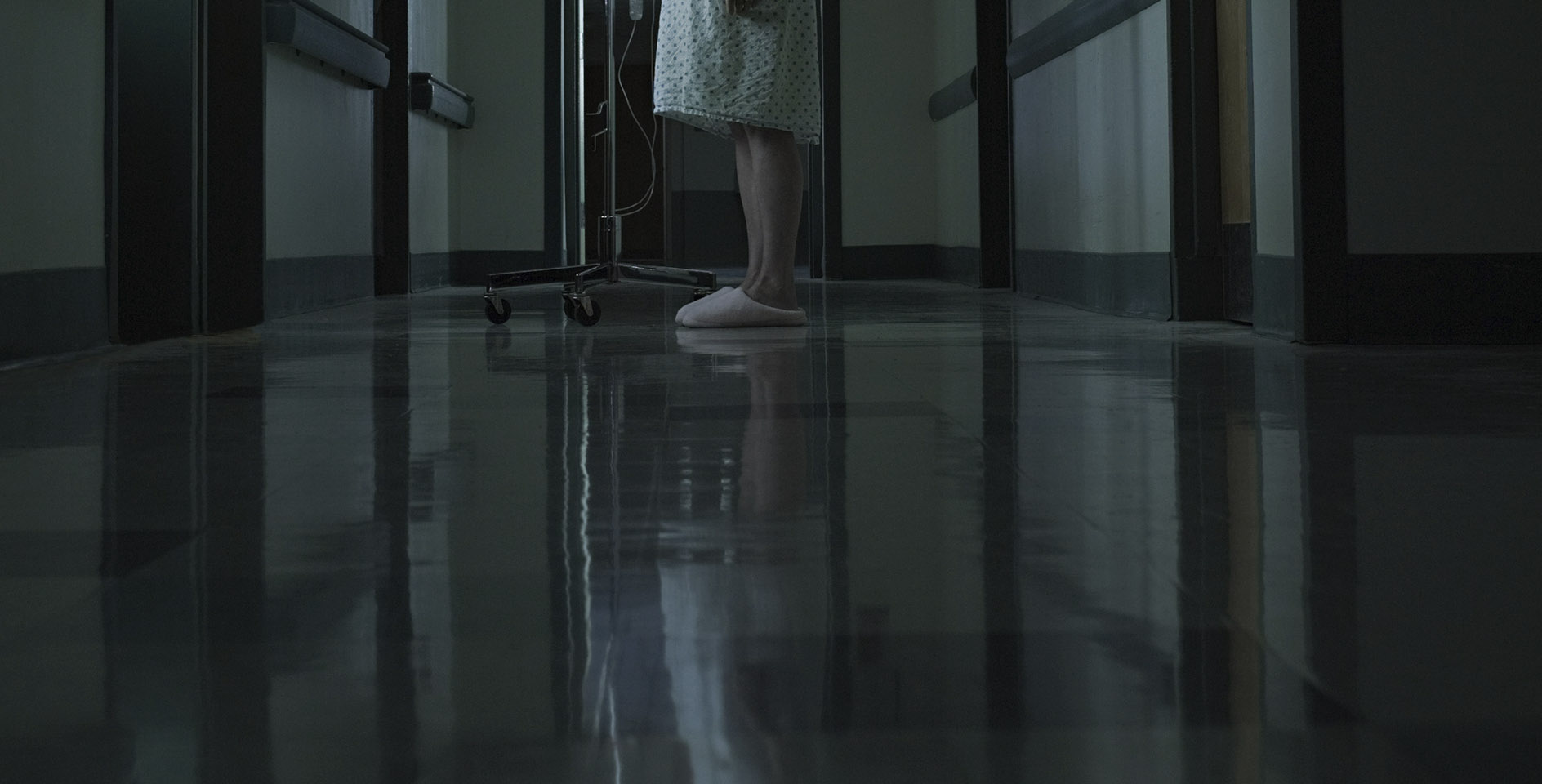Imagine you are a pastor of a local church and a man who comes infrequently to your church has requested an emergency meeting with you. In your meeting, he tells you that his father is dying of brain cancer. It is painful for this man to see his father suffer by slowly losing control of his physical and cognitive abilities. The father wishes to die because he wishes to no longer be in pain. Because the state where your church is located just passed an assisted suicide law, this man—who you do not believe is a Christian—is asking you whether it would be appropriate for this man's father to exercise his "right to die" in accordance with the state's new law. How would you answer him?
On the one hand, it is understandable why someone of advanced age with a terminal illness might view euthanasia as an attractive “medical” option. The person ostensibly has not long to live, and that short bit of life will likely be overwhelmed with physical and emotional pain. It will seem as though the less painful, frightening thing to do is terminate one’s life in advance so as to avoid going through trauma in the first place. Why live through several months of intense pain and suffering, the assumption goes, when you die at the end anyway and could just as well avoid it all?
Still, other factors are sometimes cited to support euthanasia. The costs of palliative care are a major one, casting euthanasia as a cost-saving measure, especially for the bereaved family. This same family can become a forceful second factor, where the person believes seeking euthanasia unburdens the family of time, money, energy, and attention necessary to company them through death. A surprisingly large number of euthanasia seekers have cited this reason in particular, since it is one of the few reasons that seems somewhat altruistic.
Above all, however, it is the avoidance of unnecessary pain and suffering that constitutes the most compelling reason cited by euthanasia seekers.
Suicide is never okay
Now, just because it is understandable why someone might think the above are good reasons for seeking euthanasia, that does not mean the reasons really are good. This is especially true at the end of life, when existential pressures can impair judgment and foster self-deception. Nor should the language of “euthanasia” (which translates literally as “good death”) soften or alter the fact that what is being opted for is suicide. In the case of the congregant’s terminally ill father, there are several reasons why deciding to terminate his own life is morally wrong.
On the personal level, as it relates to the congregant’s sick father, there is first and foremost the moral prohibition never deliberately to kill oneself. There are older, classical traditions, of course, like the Stoics, who felt suicide the most valiant form of courage. This was mistaken; in part because true virtue seeks some higher end, but in the case of suicide this possibility is formally cancelled out. Suicide serves no final or higher good. Suicide is thus an end in itself, not some praiseworthy demonstration of a life bravely lived.
The common contemporary assumption that all pain and suffering should be avoidable is mistaken.
Secondly, the common contemporary assumption that all pain and suffering should be avoidable is mistaken. For one, we often live with diverse forms of pain and suffering on an almost permanent basis. We diet, we exercise, we labor, we have hard conversations, we make sacrifices, etc. Some degree of pain and suffering is unavoidable in this life. This fact does not become untrue as one approaches death, but differently true. The person approaching death faces a new, threatening pain; a deep pain both of physical and emotional anguish. His pain appears not to serve any further purpose because he will soon die. This is mistaken. Pain, as C.S. Lewis once memorably put it, is powerfully formative, and often in ways that escape our perceptions. The most intense forms of pain may seem questionable in their capacity to accomplish some greater good, but the soul’s lament cries out for relief, and this cry, too, is important. It is pointless only if there is nothing after this life.
The prohibition of killing codified in the Decalogue encompasses the taking of one’s own life (Ex. 20:13). Killing is prohibited because human beings bear the image of God; they have value and worth. Human beings do not get to determine the terms of their birth and likewise do not get to determine the terms of their death. Not even Job, whose life-situation was full of tragic loss and excruciating pain, contemplates taking his own life, only of surrendering to death. Lastly, both Jewish and Christian traditions have taken the first clause of Genesis 9:5–”and for your lifeblood I will require an accounting”–as applying to suicide. Preserving life is a high human responsibility, even one’s own life.
Our lives belong to God
The Christian moral tradition, by contrast, has stressed the importance of “bodily integrity.” Human beings should in principle live whole, productive, and loving lives. That was Augustine’s emphasis, for example. Each of us has a duty to self-love and to love others (‘love your neighbor as yourself’). Love of self is natural and can be ordered or disordered. Only love of God leads to a properly ordered love of self and others. On this Christian theological basis, suicide is impermissible because it denies the fact that our lives belong to God and therefore are not ours to take. God alone brings final integrity.
Without love of God, self-love remains disordered. If the congregant’s father does not profess belief, then of course he will not understand his life as belonging to God. The theological rationale will not have strong purchase for him. The question then becomes whether there exists some common or universal rationale opposing euthanasia, a question that brings us to the social reasons why euthanasia is morally impermissible.
Secularists will wish to affirm autonomy as the normative guide for end of life decisions. That is very likely the basis the congregant’s father makes his own decision. The idea is that terminally ill patients should be entitled to reach their own decision whether to continue living or to take their life with the help of a physician. It is even the person’s decision as to whether pain is purposeless. Autonomy is the guiding criterion.
In one sense it is important for end of life decisions to fall to patients themselves. The congregant’s father would have at some point been confronted with the question of whether to try other exploratory treatments, or to discontinue treatment and transition to palliative care. Forced treatment is a bad idea and a violation of the patient’s dignity. It should be their call. If they decide to forego treatment, their eventual death is not wrong or in any way morally troubling. No one is at fault for dying of ailment.
The ethics of dying
This moral distinction is crucial: there is a world of difference between allowing to die and direct killing. At some point omission of care is not a fault, but a courtesy to the patient. Euthanasia, by contrast, asks the physician to prescribe chemicals for the purpose of directly killing the patient.
Euthanasia is often misleadingly referred to as “death with dignity.” Physicians agreeing to prescribe the relevant chemicals (in the states where it is legal) describe their “care” as merciful. But this mistakes what it means to have, and so to perish, with dignity. It is a simple, indefinable attribute. Dignity describes something all human beings have to some degree or other, which no one can take away, and has something to do with mastering one’s existence and displaying that mastery. This is not to suggest that everyone should see excruciating pain at the end of life as chance for moral achievement; that’s not it. But it does suggest a strong connection between how we bear pain, proceed toward death, and bear our dignity before others. Not an achievement, but an endeavor.
The church’s social witness
The case we’re reflecting upon is particularly difficult because both the person asking advice and their father do not profess Christian belief. Terms of persuasion are slightly different. But one last approach might be persuasive: no one has a right to do what is wrong. A state crafting some statutes granting permission for patients to take their own lives—event under specific, terminal circumstances—does not make an immoral act moral. Any binding law must have a moral basis and so carry moral authority. Taking one’s own life breaks the moral law, state laws allowing for the practice does not suddenly make it right. That is what Augustine meant when he said that an unjust law is illegitimate: a law that lies is without authority.
Bearing in mind all that’s been said so far, the only faithful answer to give to this man who has come for advice is that it would be wrong. Direct taking of one’s own life constitutes a moral wrong. No matter how much it may feel as though euthanasia offers much preferred relief and mercy, in reality, it does not. And who knows, perhaps the prolonging of life, however brief, may result in the father’s conversion. God has certainly met people under odder circumstances.
Editor’s Note: This article is a part of a monthly series sponsored by the Research Institute written by its Research Fellows that focuses on difficult ethical issues facing Christians in the local church.










